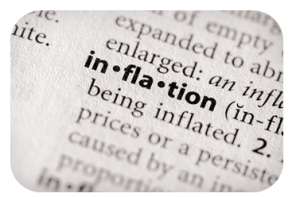
While some may argue that the economic climate is improving in the UK, the Bank of England (BoE) faces a considerable challenge when attempting to drive and maintain growth.
This is reflected by the current, macroeconomic climate, as while an increase to the base interest rate has boosted the value savings individuals are still losing more to inflation than they’re managing to accrue.
With this in mind, it’s crucial that you understand the nature of your individual bank accounts and manage your savings expectations accordingly.
Here, we’ll look at the most basic entry level accounts you can open, and ask why they exist in the first place?

What is a Basic Bank Account?
In simple terms, a basic bank account is freely accessible to applicants but offers a relatively restrictive range of features.
In fact, it’s ideal for anyone who is looking to open their first bank account or begin to rebuild their credit score, as it will not enable you to access an overdraft at any given time.
This type of account should be entirely free to open, while the service provider in question should not apply any monthly maintenance charges. Through this type of account, you can receive money and pay bills through Direct Debit or Standing Orders, with these transactions also free from any additional charges or commission fees.
This contrasts sharply with more advanced bank accounts, as these will usually apply charges in exchange for a wider range of features. Take this examples from Think Money, for example, which charges a transparent monthly maintenance fee while also offering controlled spending measures and access to UK-based money managers.
 Why do These Bank Accounts Exist?
Why do These Bank Accounts Exist?
Most bank accounts come with a basic overdraft threshold, which enables you to occasionally spend more than the amount that’s in your account without forcing you to incur charges.
However, this can lead to a recurring debt cycle and long-term charges if your struggle to repay your overdraft each month, so it may be something that those with poor credit histories would like to avoid.
Free bank accounts enable them to achieve this goal, as they will not offer access to an overdraft and force users to spend outside of their means. Similarly, this type of account is ideal for anyone who has not saved cash with a bank or building society before, as it provides an entry-level product that suits both accounts holders and lenders alike.
Most importantly, free bank accounts add diversity and choice to the market, meaning that customers need not be discriminated against because of a poor credit score or an historic lack of recorded credit transactions.
You must log in to post a comment.